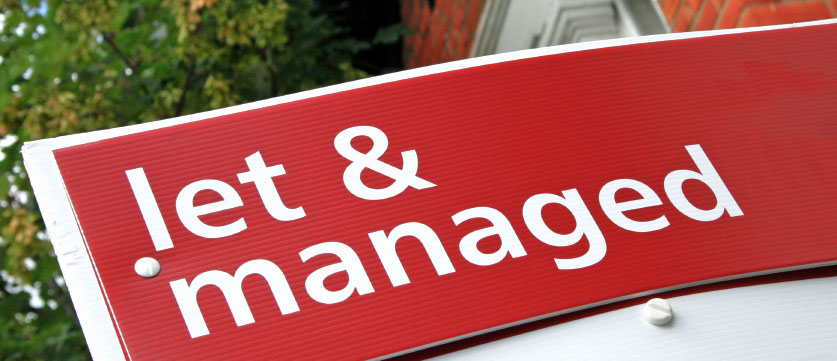
The amount of commitment and work involved in letting your
property should never be underestimated, and using the
services of a professional letting agent can be essential. As
a good reputable agent is worth its weight in gold, can help
guide you through the complexities of the process, take away
the stresses and strains of being a landlord, most importantly
they will always have your best interests at heart.
There are several factors to consider when choosing the right
letting agent such as reputation, professionalism, services or
fees, but our best advice is to use an agent you know you can
trust, and you will be comfortable working with them for the
foreseeable future and beyond, building a long lasting trusting
relationship. Always chose an agent who is an active member
of a Redress Scheme such as ‘The Property Ombudsman’.
It is of high importance that fees should never be your main or
only motivation as the best letting agent does not mean the
lowest price and remember that agent fees are tax deductible.
Thus, we strongly recommend that you pick an agent on the
quality of service, considerable experience, extensive local
knowledge, and the ability to deal with issues, maximise your
income and enhance the long term value of your property.
|
As a result of overwhelming demand for rental properties in
many parts of the UK, particularly in London, some landlords
may have unrealistically high expectation in what rent they
can achieve. This can be a false economy as an unfeasible
rent can lead to extended and costly void period between
tenancies and affect your overall rental yields, hence setting
the rent correctly is absolutely key.
You need to be aware that some agents may be tempted to
overvalue your property in order to obtain your instruction,
but an over-priced property can often prove negative leading
to a lower number of enquiries, and could potentially reduce
your target market, no matter how well your property is
presented, so it is essential you set an achievable rent from
the start, to ensure you can secure suitable tenants quickly.
You should also keep a relatively open mind about rent
reviews and consider the whole picture before deciding on a
rent increase. If you have a good quality tenant, who are
paying the rent promptly and looking after your property, then
driving them away, could cost you a lot more money in the
long run - it is always preferable to have a tenant paying you
rent than risk having your property remain empty.
|

Successfully letting you property not only depends on location
and price, but also on its presentation. A well presented
property will not only result in finding a high quality and long
term tenant quickly, increase your rental income and maximise
the occupancy rate, but will more often than not encourage the
tenant to care for it in the correct manner - remember, it is a
small investment and the return always outweighs the cost.
It is important to make the place inviting, comfortable and
cosy, so your tenants can feel welcome and at home. In our
experience, the safest way to deal with the style of your
property is to keep the decoration neutral, light and modern.
This means you do not have to constantly update to the
current vogue but maintain a simple and timeless design, thus
keep costs to a minimum and save you time and money.
You should also consider redecorating the property at the end
of each tenancy or every 2 - 3 years, to make sure it is always
kept in immaculate condition. Alternatively, you can offer your
tenants the option to paint the place during the tenancy, as
this will allow them to add their own personal touch and not
only will provide your property with an edge over others, but
also enhance your chances of achieving the highest rent.
|
Whether you let your property furnished or unfurnished, there
is very little difference in the rent you could expect to achieve,
but may have an impact on your target market so it is always
advisable to ask the agent for their opinion. However, in most
cases, we would recommend you are open to negotiation,
remain flexible, try and look at the situation logically – never
turn away a good tenant if you can provide a couple of items.
Both approaches have their obvious pros and cons, furnishing
your property will likely attract tenants quicker who can move
in straight away, but your fixtures and fittings will be subject to
normal wear and tear, and will need to be updated from time
to time. Whereas, an unfurnished property may take a little
longer to find a tenant but it will provide your tenants a sense
of permanence that can lead to a happier and longer tenancy.
If you decide to let your property furnished, you must ensure
that all furnishings meet the legal safety standards, but be
aware that you will be obliged to repair or replace any items
that are damaged during the tenancy, unless caused by the
tenants neglect. You will need to supply ‘white goods’ even if
you intend to let unfurnished, and you will be responsible for
the general maintenance of this throughout the tenancy.
|

Even if you are letting out a brand new property, you can, and
should expect something at some stage to go wrong, so it is
essential to always act upon any repairs or maintenance as
soon as they are bought to your attention, and also it is in
your financial interests to ensure the property is kept in good
condition, it does not take long for a minor problem to turn into
a major and more costly issue if left unattended over time.
You may want to consider taking out a service contract or
extended warranties to cover the more temperamental
appliances such as your boiler and washing machine. This
would give you added piece of mind in knowing exactly how
much you are paying out every month and will help avoid an
expensive and unexpected repair bill. Remember that any
costs can be offset against your income from the property.
Keeping up regular maintenance of your property will not only
provide your tenants with a safe living environment as the
statutory guidelines require, but it will also help to maintain the
market value of your asset, ensuring you will always achieve a
good rent and attract quality tenants, or if your circumstances
change and you need to sell the property, you will be able to
receive a maximum return on your investment.
|
Buying a property to let is one of the most popular long term
investments, due to the potential returns often being way
above what you could receive from pensions or shares, and is
also a great way to provide a secure future for you and your
family. Whilst it will reward you with capital growth and rental
yield, it is far from straightforward, so planning and research
are imperative to the success of your buy to let venture.
Whether you are a new or seasoned landlord it is fundamental
to understand your target market, so you should consider the
property type, right time to invest, as well as the location with
factors including: school, transport links, regeneration plans,
and employment initiatives - properties that are near hospitals
or universities. If you are unsure of an area, our Area Guide
will give you an insight and overview to help you decide.
Over the longer term, you will need to think of the overall
profitability of your investment – a decent rental property
should provide an excellent yield with a minimum yield of 5%,
however some properties may not offer a great yield, but the
potential of quick capital growth so a lower return should be
considered. Thus, it is important to consider all options and
opt for a property that will work with your investment plans.
|